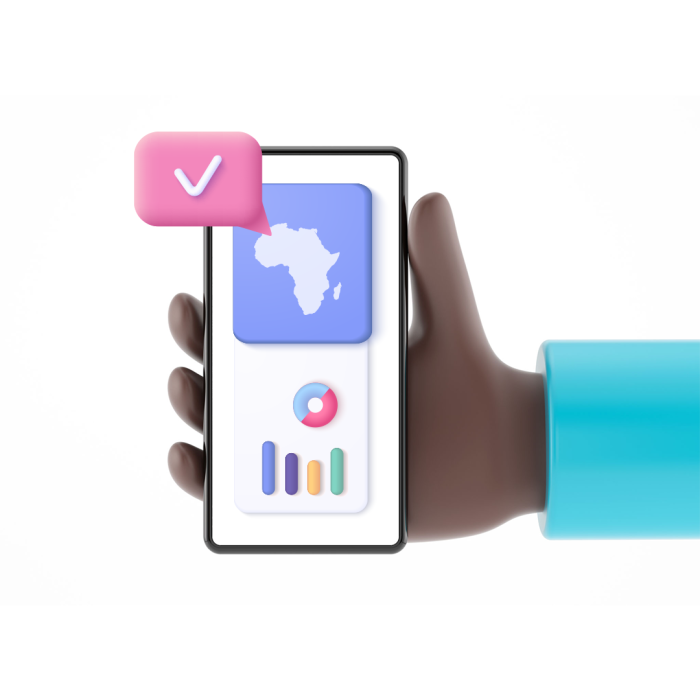Due to the fledgling phase of its markets, Africa offers potentially significant returns to both domestic and international businesses with an aptitude for detecting possibilities and the ability to think innovatively. Along with political and economic reforms occurring across the continent, this appears to be an appealing investment opportunity for foreign investors.
According to the UN, Africa is the most profitable region in the world. With a large amount of Foreign Direct Investment, its economic growth prospects are also among the best in the world. Therefore, it is not surprising that the continent is the next destination for western corporations seeking expansion.
As enticing as the African market is, particularly for western companies seeking to enter it, caution must be exercised upon entry. This is because the continent’s consumers are diversified in culture and tradition. Consequently, market research becomes crucial.
Market research is particularly necessary if you must offer bespoke products/services to a distinctively comparable, yet diverse consumer market like Africa’s.
Why should foreign businesses conduct market research in Africa?
1. It is right for every new entrant
To enjoy relevance and longevity, the initial stage for a new entrant business is to comprehend the market. Before entering a new foreign market, it is vital to conduct extensive international market research and assess the potential available. Africa is no different. Effective research will help you avoid costly errors and optimize your earning potential.
2. Enjoy a competitive advantage
Market research makes it possible to enter a new market with confidence and be recognized just like the ‘older players.’ Words on the street have it that Africans are lovers of foreign brands. Nevertheless, Western enterprises must understand their competitors in order to flourish in a new market (in this case, Africa) and obtain a competitive advantage. An article in The Economist noting the importance of data in decision-making processes today compared data to digital oil for obvious reasons. Data has evolved into the ultimate tool for commercial success. As a result, new entrants must not dismiss the results it generates. If your competitors are doing it, why not you?
3. Develop a quality business strategy
It is no news that there is a huge data gap in Africa. This has affected the continent across several sectors- including commerce. Without solid market research data, it is very difficult for western corporations to develop a robust and quantifiable business strategy that would lead to corporate growth in Africa. This is confirmed by Helical IT’s assertion that businesses have a 79% greater likelihood of success if their company strategies are driven by precise data rather than intuition.
Brands that have expanded to Africa and how market research has helped them.
Nestlé
Nestlé’s history in Central and West Africa stretches back to 1957 when it began trading and distributing products in Ghana. Today, the FMCG company owns and operates nine plants that service the region and employs over 5,200 people directly.
Let Survey54 help you succeed in the African market
In 2005, the Nestlé Central and West African entities were formed. The entity handles operations in 25 nations in the region, ranging from Mauritania to the Central African Republic. It has its headquarters in Accra, Ghana.
The company’s mission in the Central and West Africa Region is to:
- Enhance people’s quality of life with nutrition and health solutions grounded in science for all stages of life.
- Assist individuals in caring for themselves and their families.
Nestlé’s portfolio in Central and West Africa consists of a variety of products in several foods and beverage categories, such as dairy, culinary, coffee, drinks, newborn nutrition, and bottled water.
What role did market research play?
Nestlé recognizes that African consumers’ significantly different incomes, dozens of ethnic groups, and traditional culinary preferences create a diversified market.
As it does elsewhere, Nestlé adapts its products to the local culture and preferences. They do significant customer testing and market research to comprehend customer needs, and they adapt their products to local cuisine tastes based on this knowledge.
Additionally, they consistently enhance their products at their numerous research and development facilities. Currently, 25% of the global volume of fortified food portions, which totals 16.2 billion, is manufactured and marketed in Nestle West and Central Africa (ThisDay).
PZ Cussons
In 1884, George Paterson and George Zochonis founded PZ in Sierra Leone, West Africa, when they began trading commodities with the United Kingdom. Nearly a century later, in 1975, the company they formed purchased the similarly prestigious Cussons Group, forming the current PZ Cussons.
Over the years, they’ve expanded to become an international consumer products conglomerate, home to some of the world’s most well-known and reputable brands. The pioneering spirit, energy, and entrepreneurialism of their founders, together with strong views about how to do business most effectively and a passion for learning, remain at the foundation of their identity.
For years, PZ Cussons’ goods have been a staple in millions of African households.
What role did market research play?
PZ Cussons stated in its 2019 Annual Report & Accounts, “Our Strategy for Growth” that they continue to actively listen to their consumers through social listening, market research, and shopper insights to ensure that their product development pipelines respond quickly and satisfy their requirements. They appreciate the significance of this about the major brands that will drive their future success.
Procter & Gamble
P&G began operations in Nigeria in 1992 and began local manufacturing of Always sanitary pads and Vicks throat drops at its Ibadan, Oyo State production facilities in 1993. The company’s headquarters are located in Lagos, with manufacturing facilities in Ibadan and Agbara, Ogun State.
Let Survey54 help you succeed in the African market
They deliver world-class standards to Nigeria with a robust portfolio of six top brands: Pampers, Ariel, Always, Oral B, Gillette, and Safeguard. They increase consumer satisfaction and market standards and provide the most advanced production technology to fulfill the diverse wants and budgets of their consumers.
What role did market research play?
According to an article, Procter and Gamble, one of the world’s largest consumer goods firms, frequently conducts market research before the launch of a new product and uses this information to determine its marketing mix, as well as its marketing strategy and techniques. Thus, Market Research assisted the corporation in determining its marketing strategy by shaping the product’s brand identity and identification. The company has, since 2017, invested over $1m in the continent.
Conclusion
It is safe to say that accurate, high-integrity data is crucial to Africa’s economic development. Similarly, Investors and multinational corporations require credible data to enter the market. However, they are difficult to obtain, particularly for newcomers.
In Africa, these data gaps arise for a variety of reasons, one of which is the lack of appropriate data-gathering instruments and methodologies. The good news is that if you know where to look, you can find the appropriate tool.
Survey54 is a consumer intelligence platform that assists businesses in understanding the African consumer. We utilize crowdsourced data from our audience, who inform us via surveys, photographs, and videos of what they are consuming. This tracking information is subsequently sent to our clients, who utilize it to make more informed business decisions.
Our technology enables businesses to get the answers they need to make decisions to:
- Test brand awareness
- Run product-market fit assessments
- Get real-time opinion polls
We pride ourselves on helping you make quick data-driven decisions with on-demand and transparent insights.
To find out more about Survey54, get in touch with us at https://safiyo.aicontact-us











